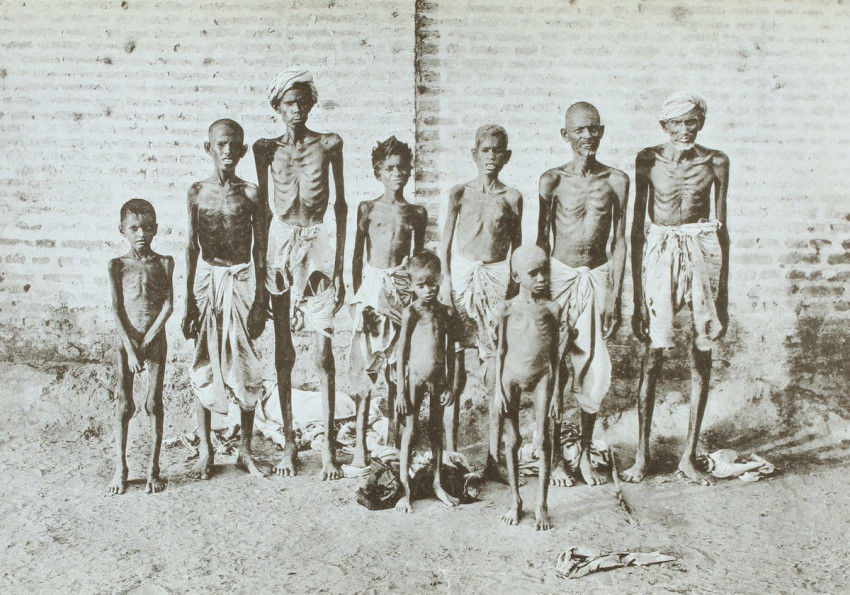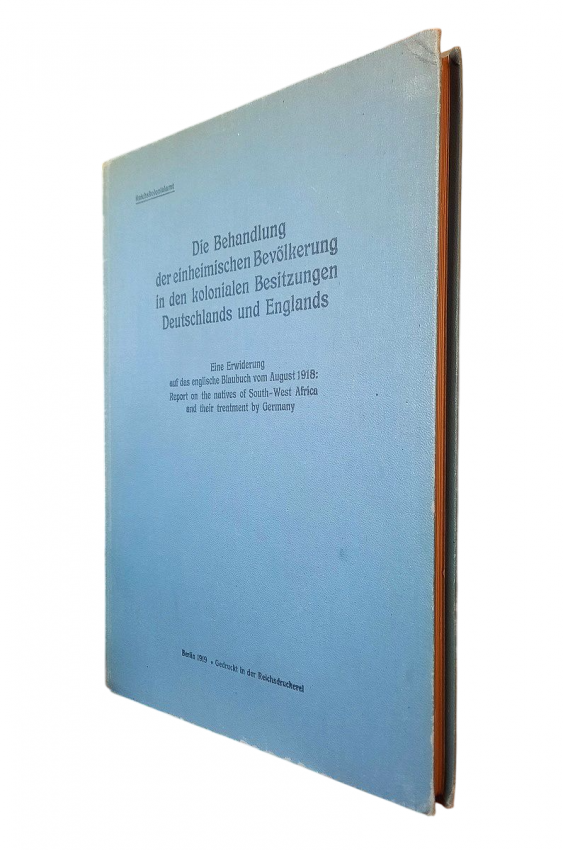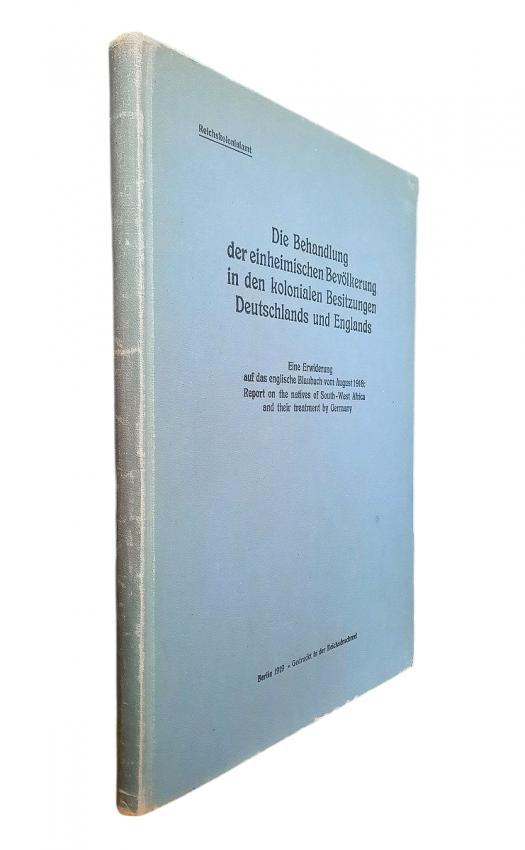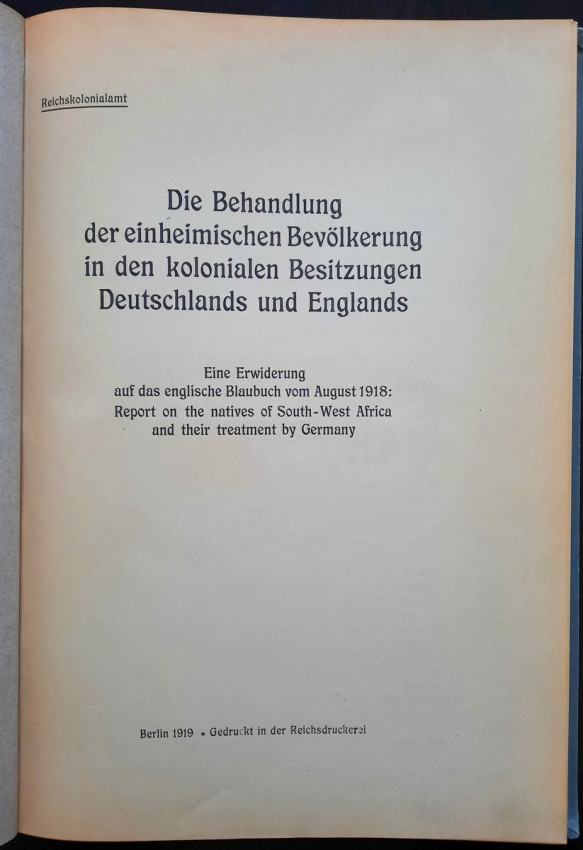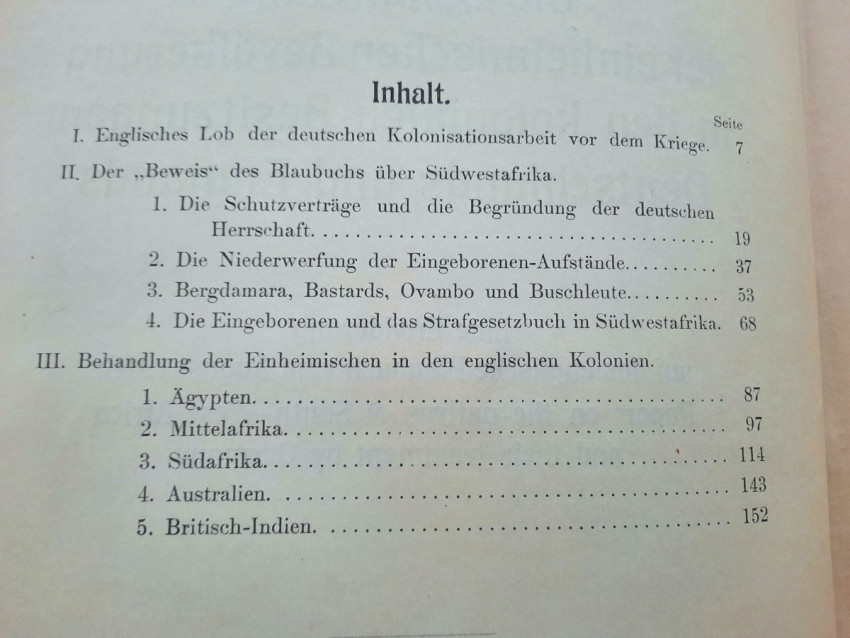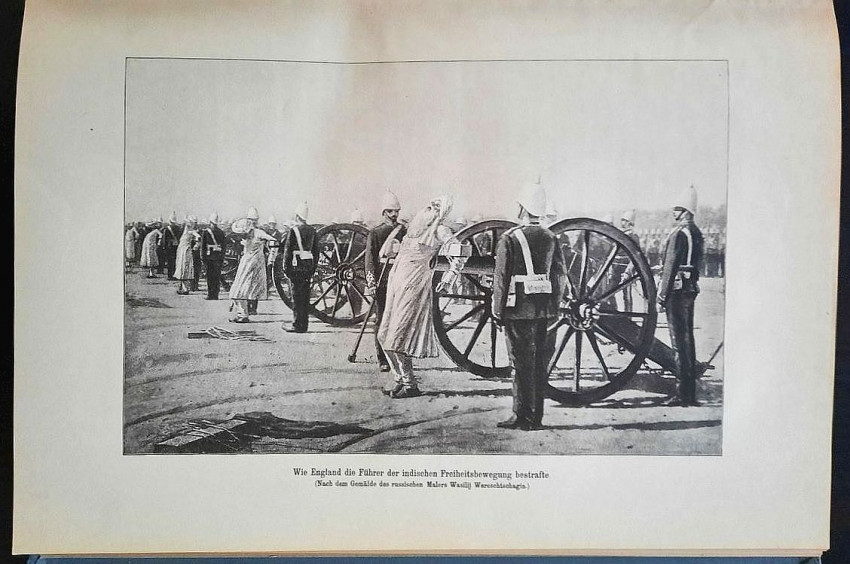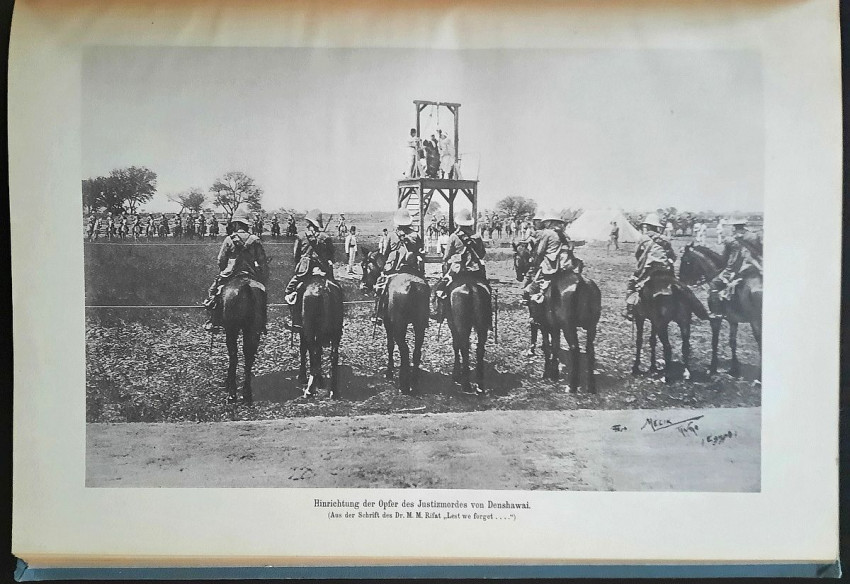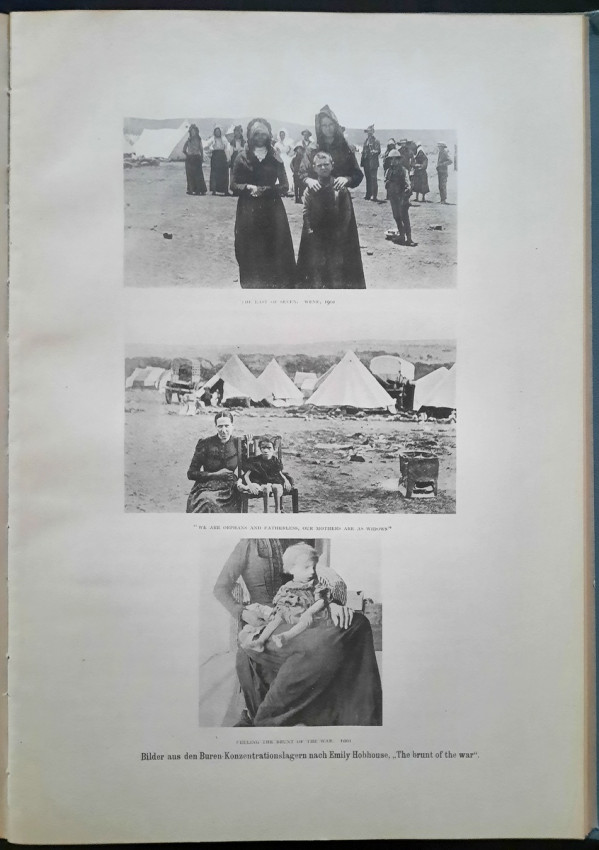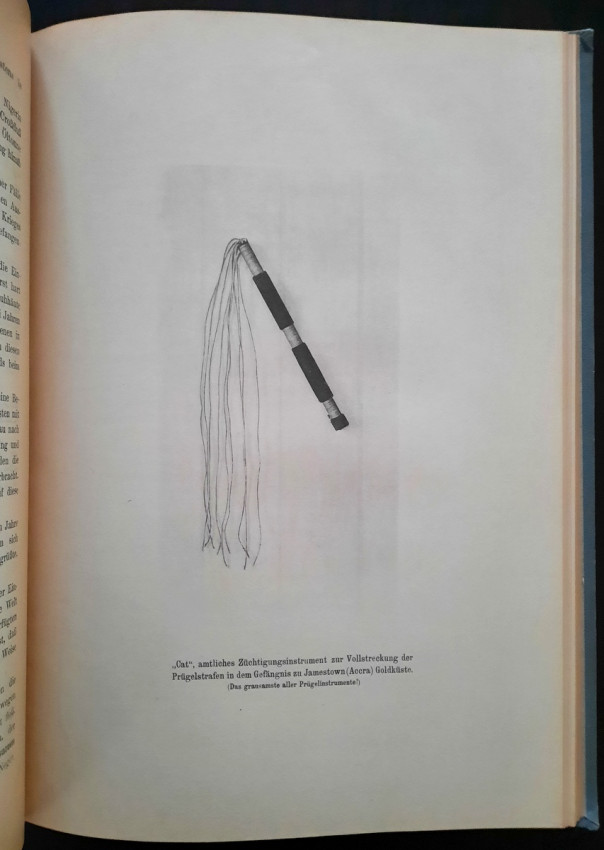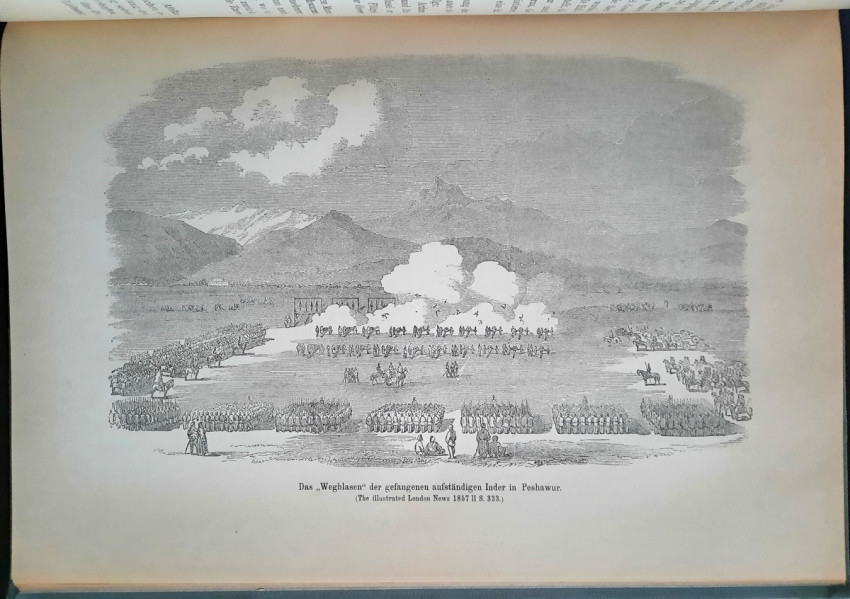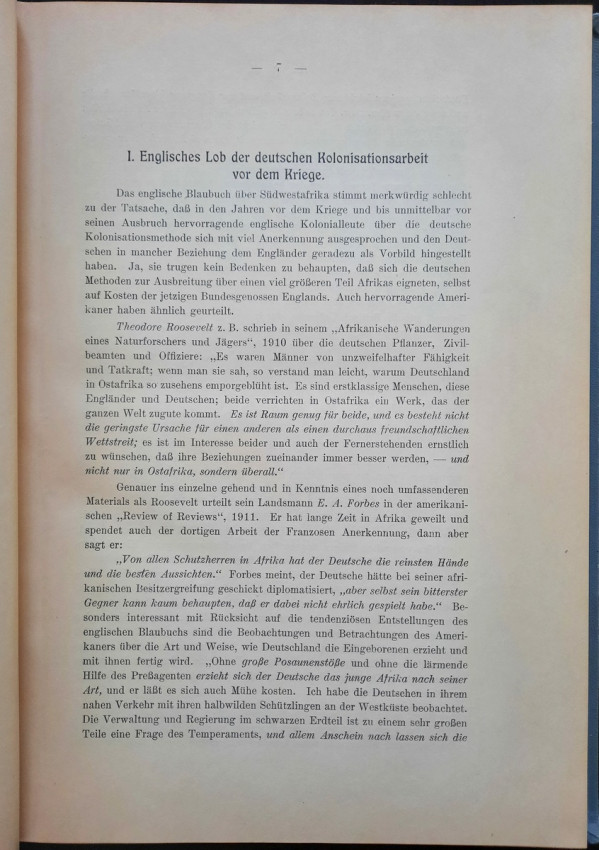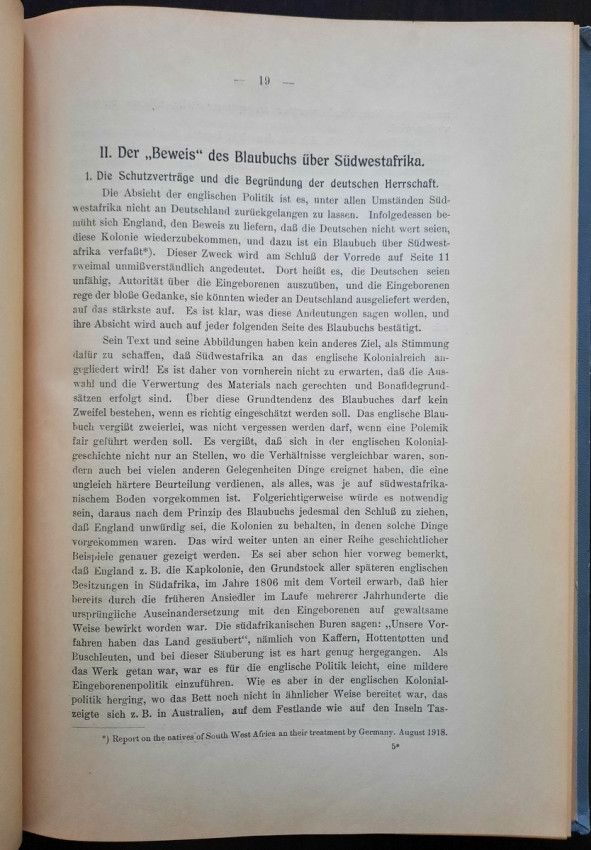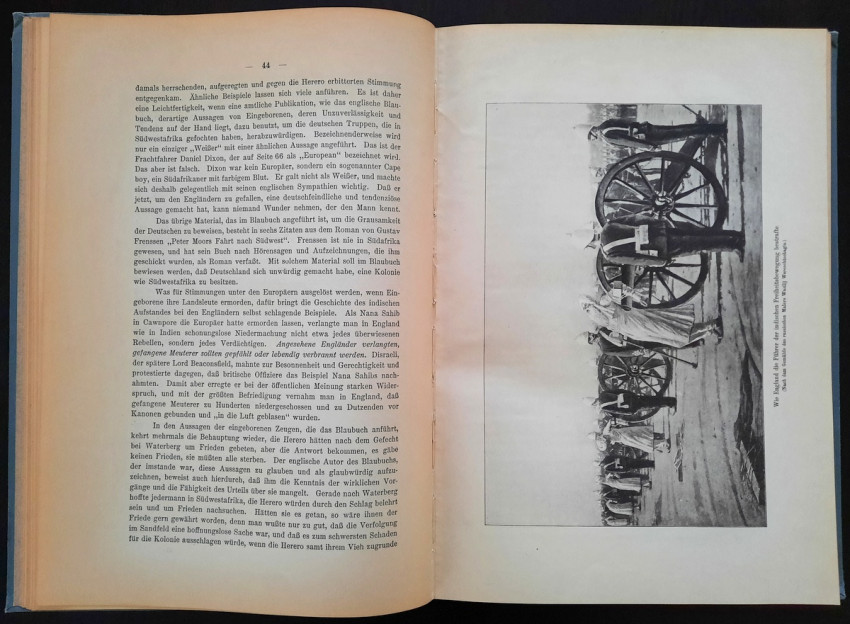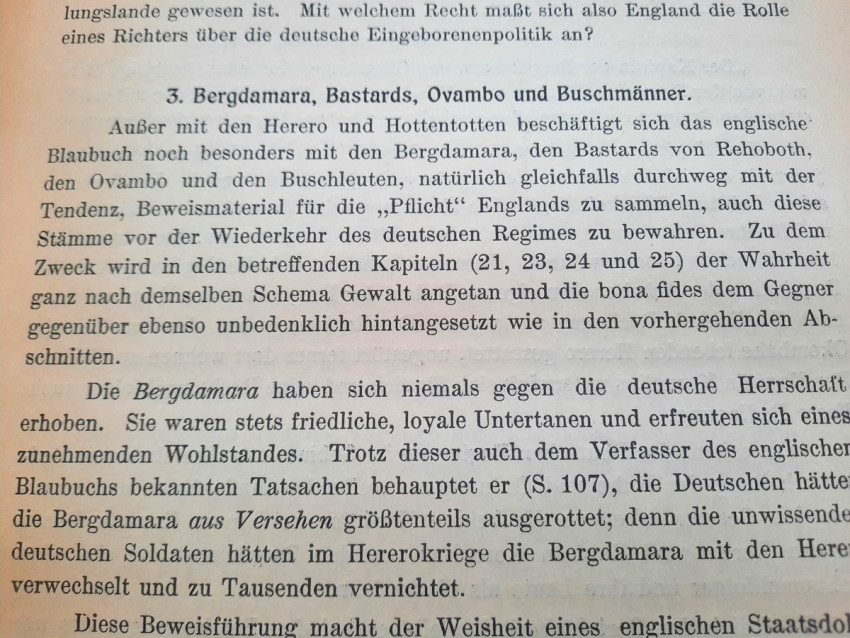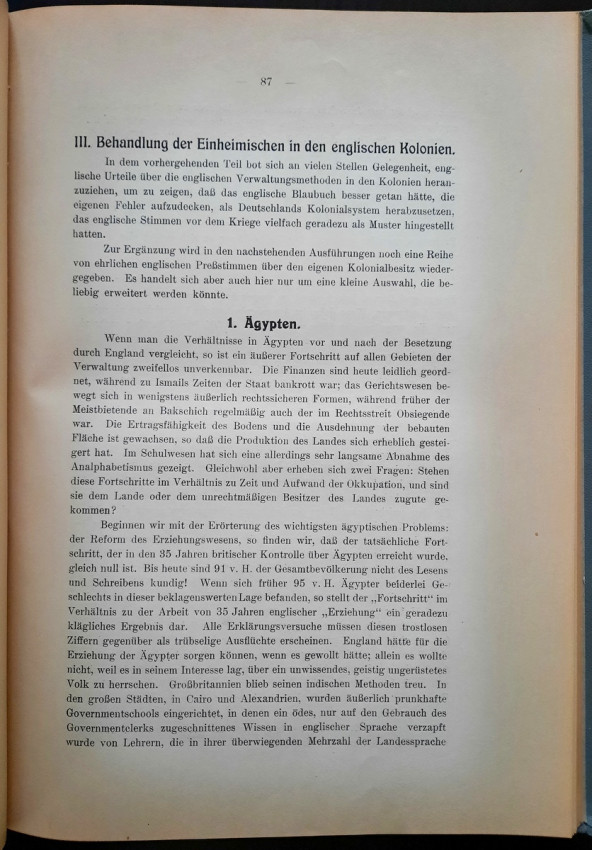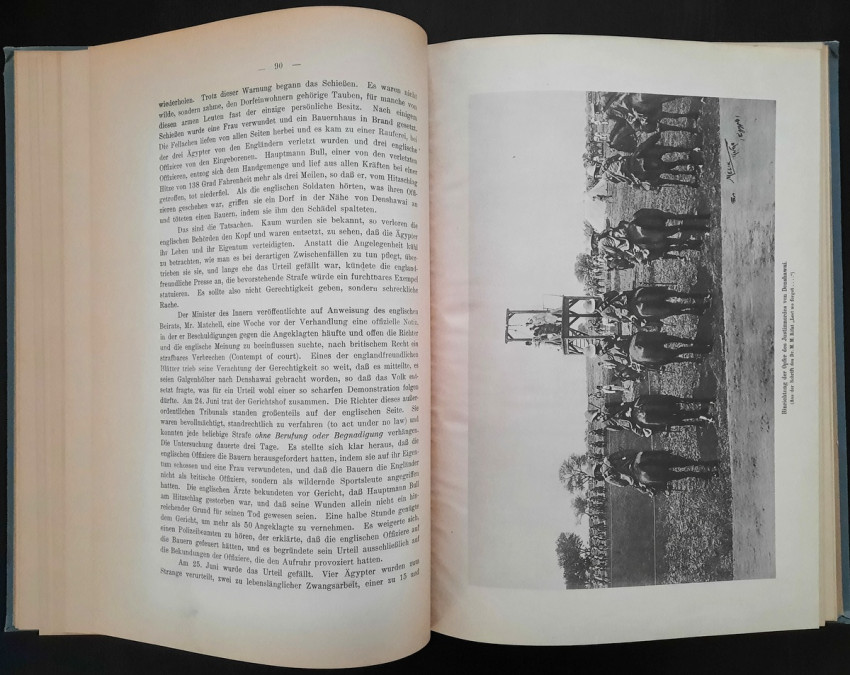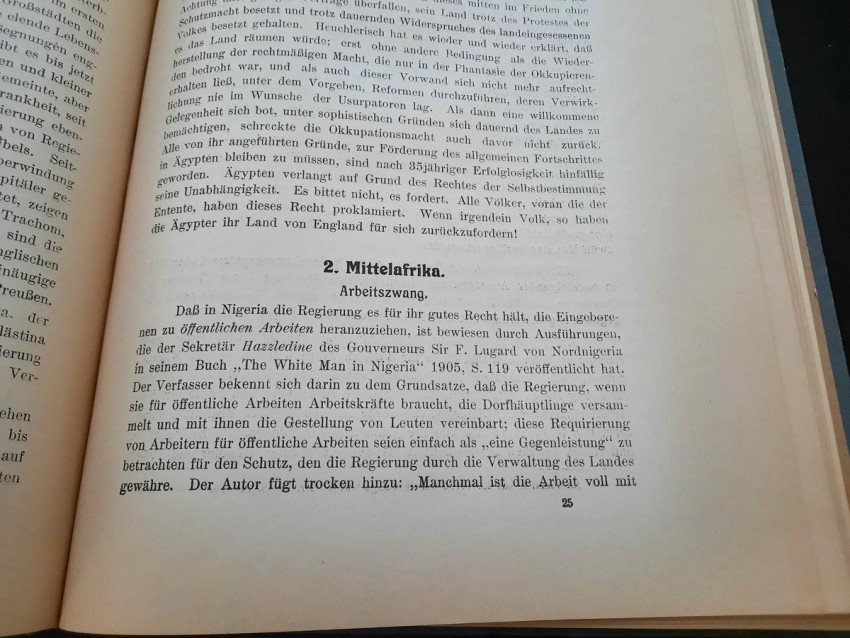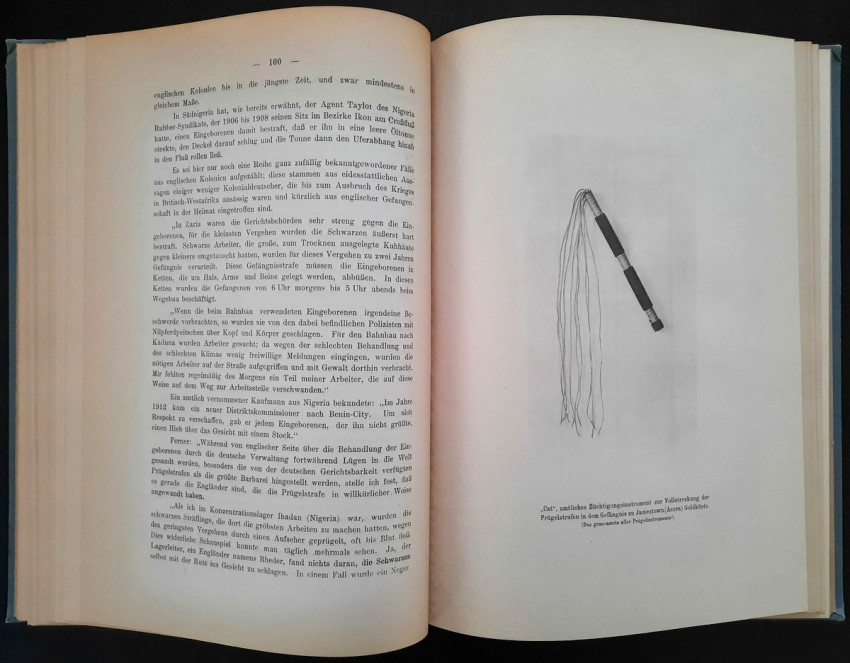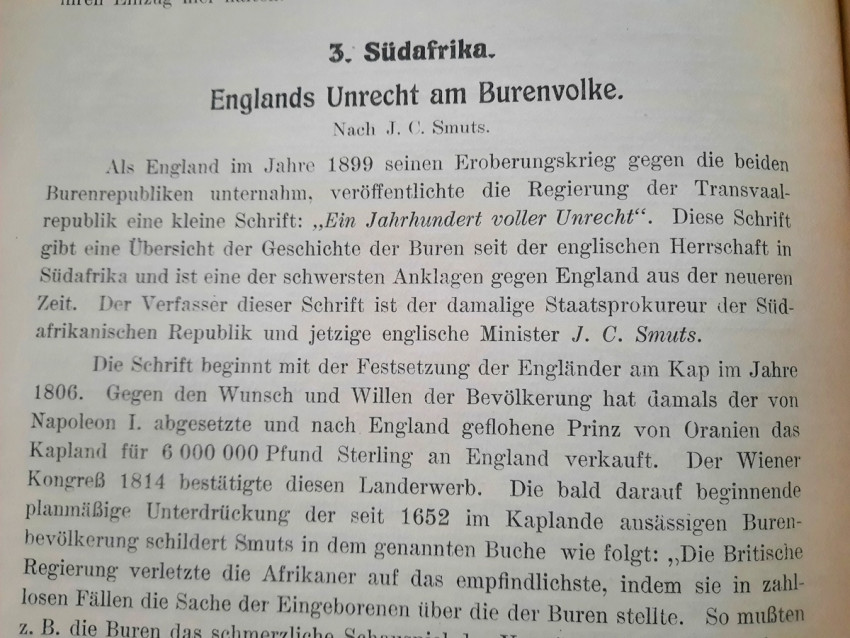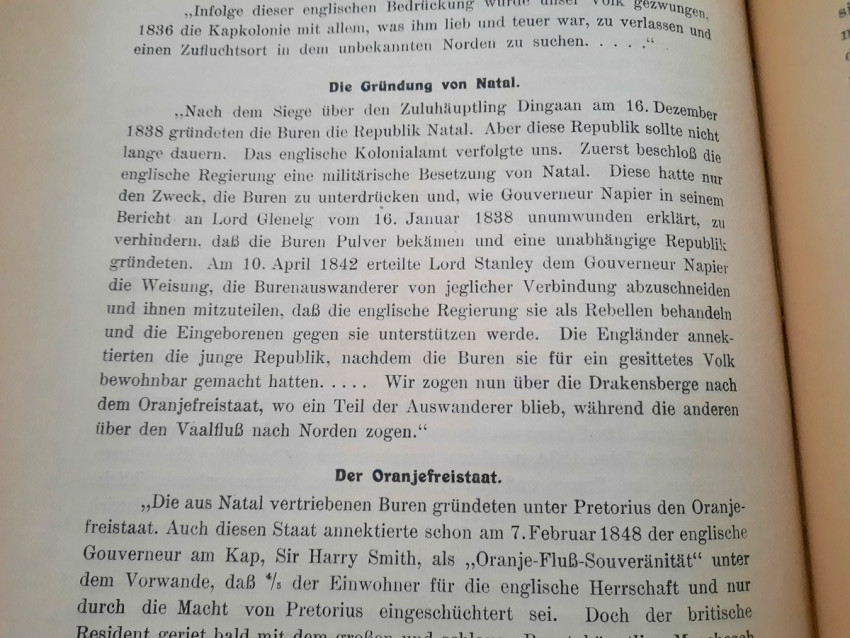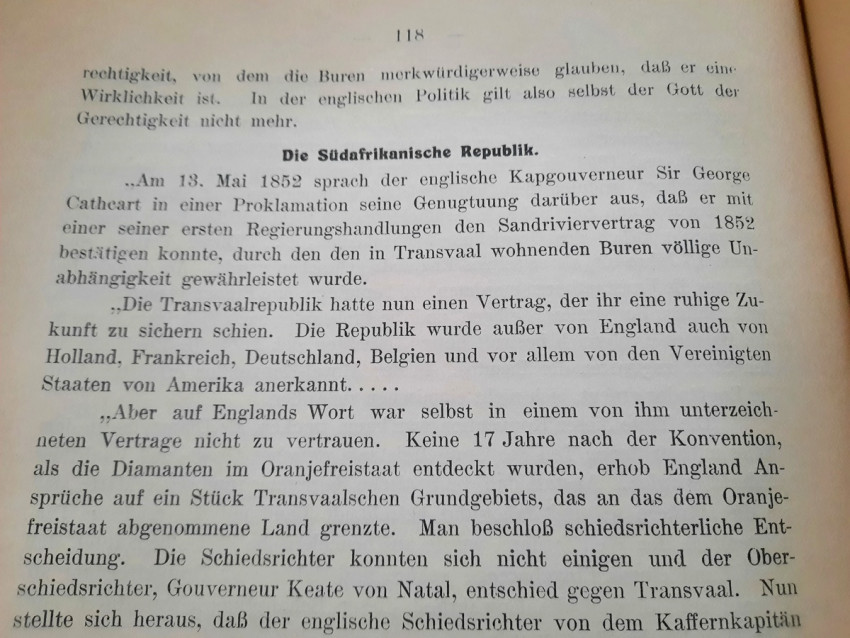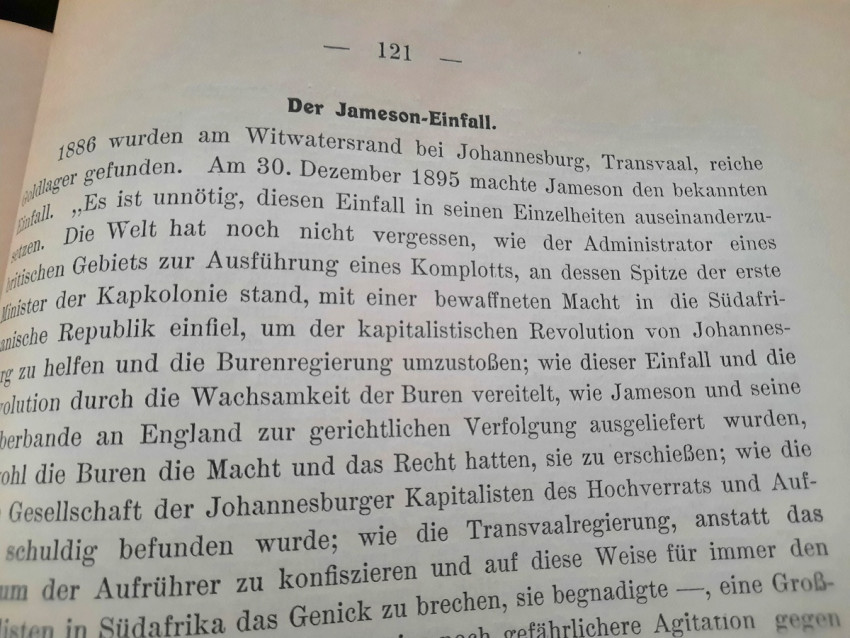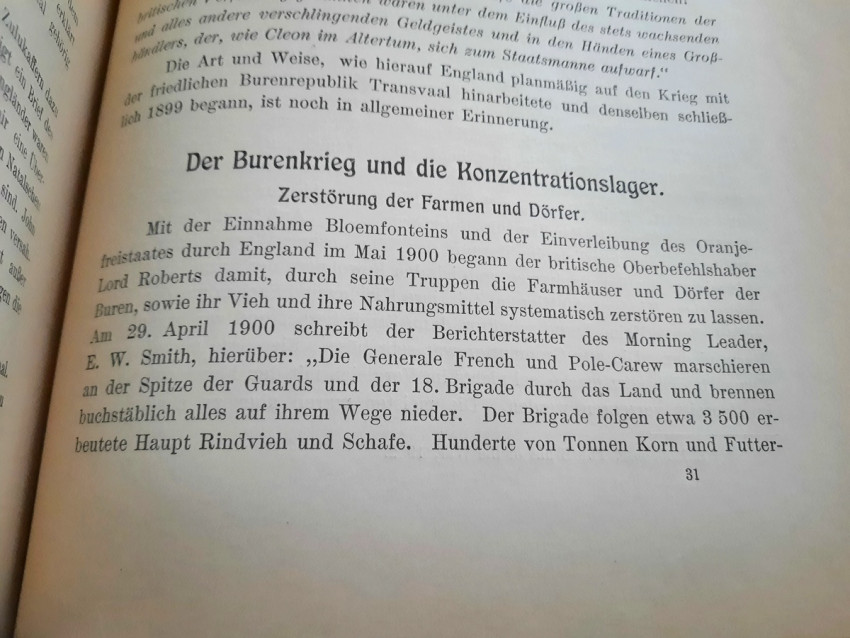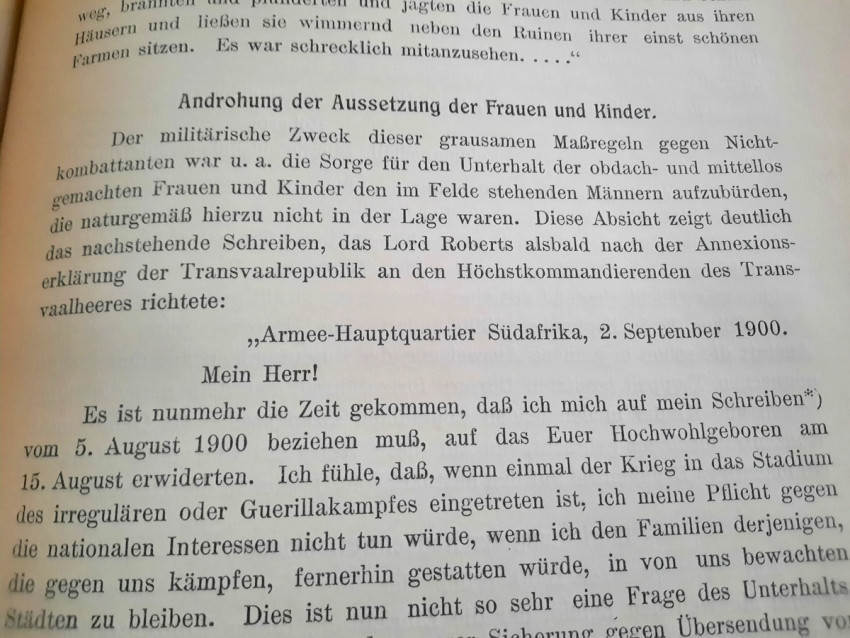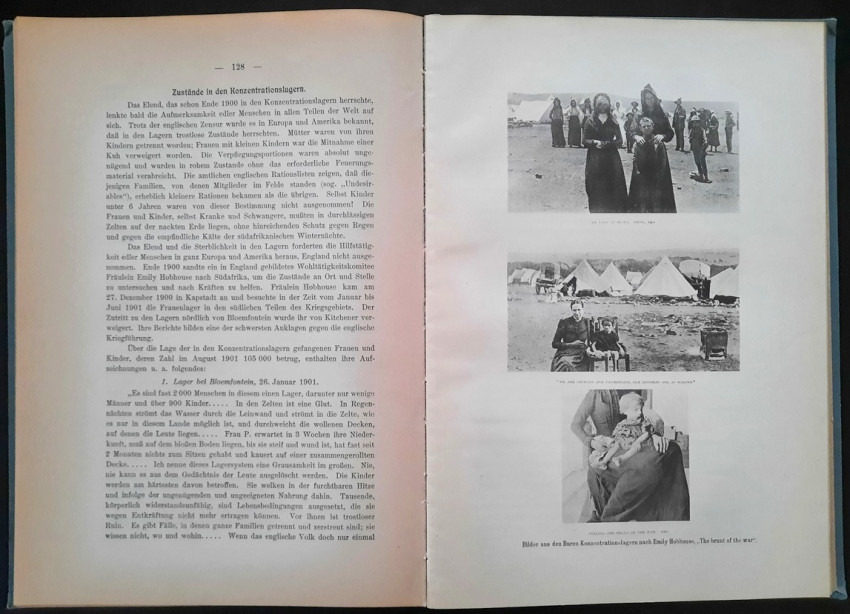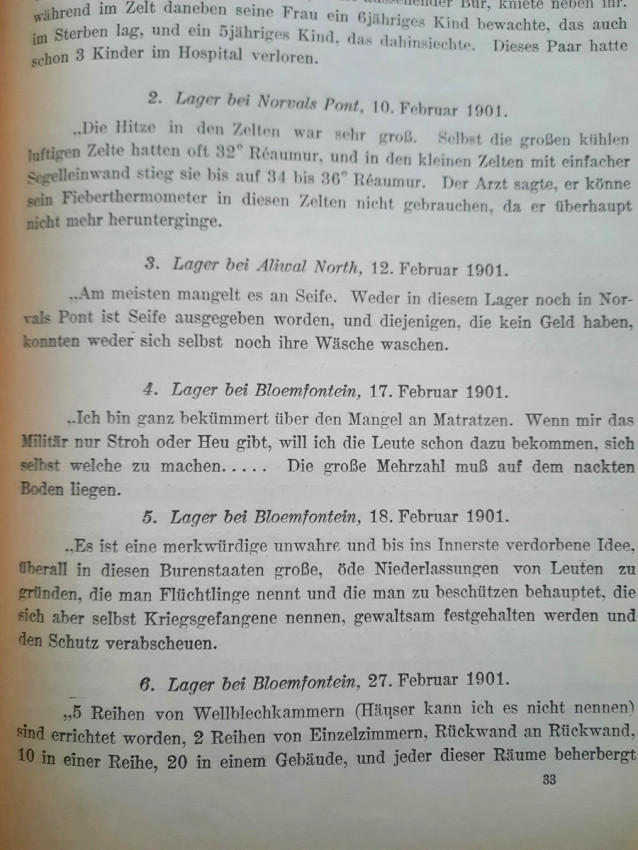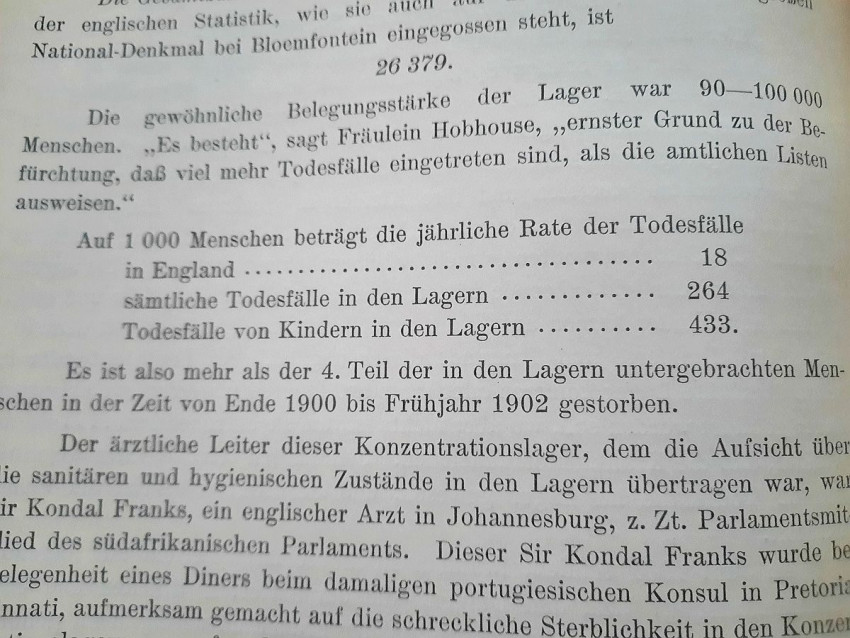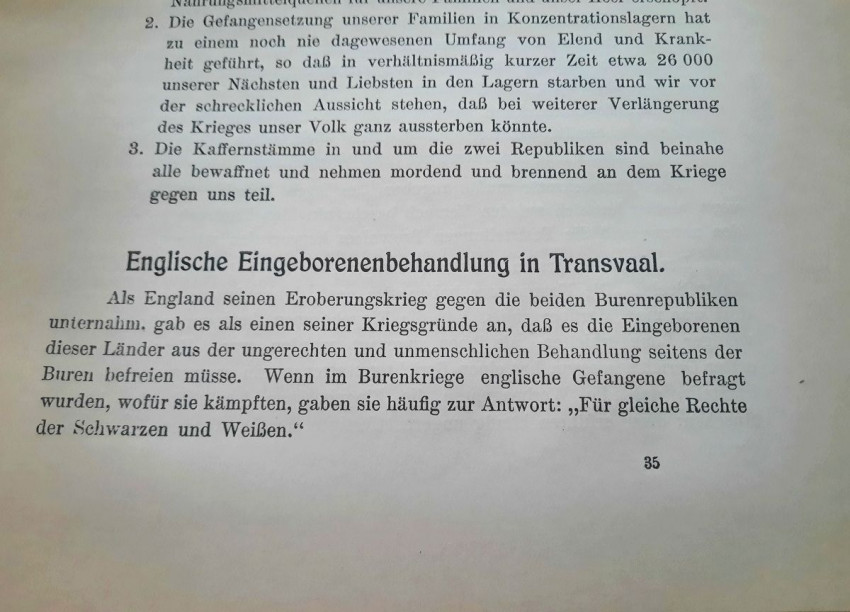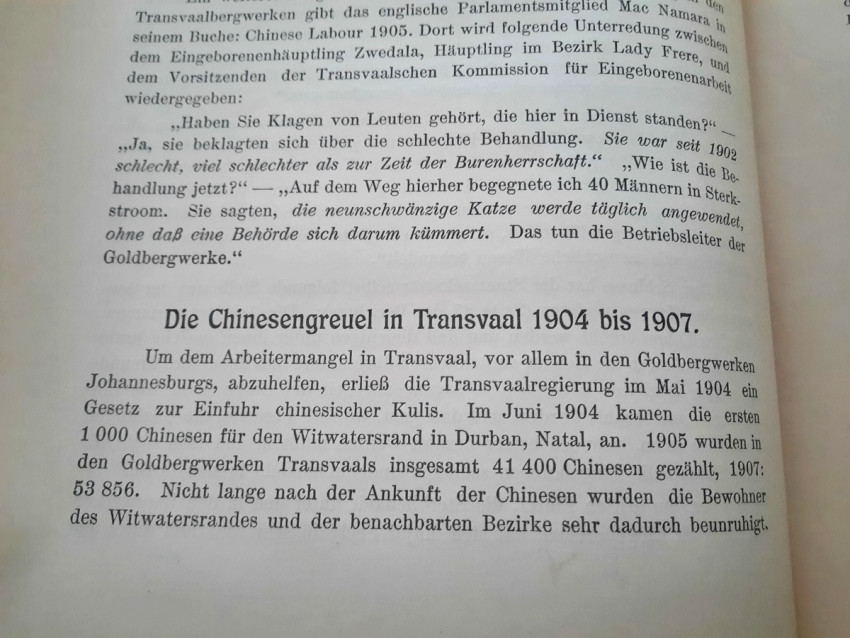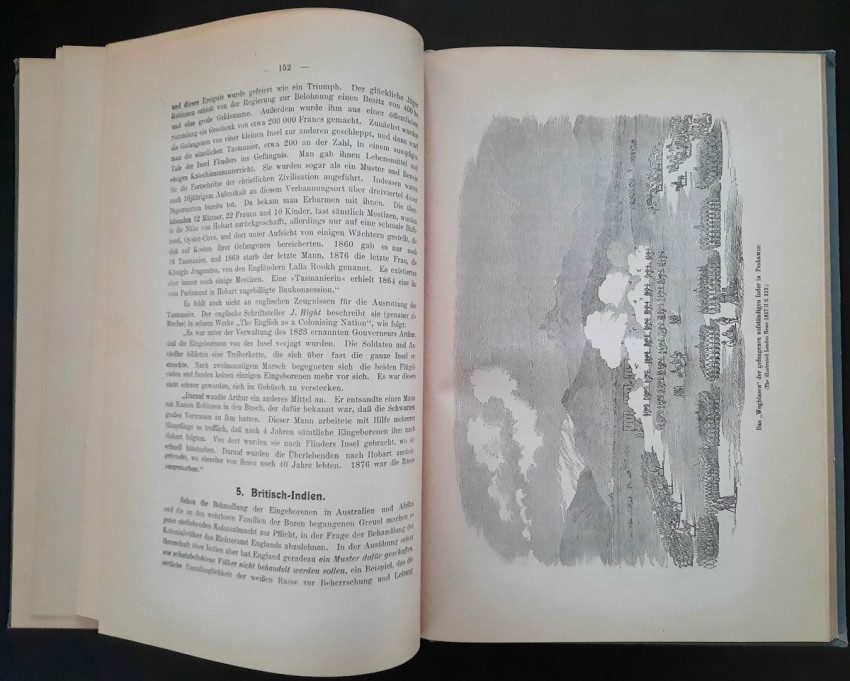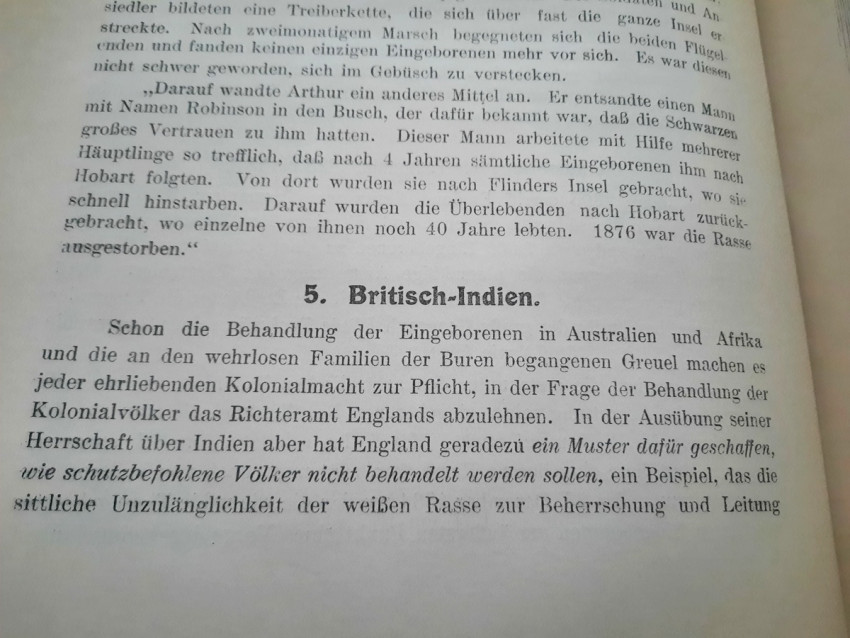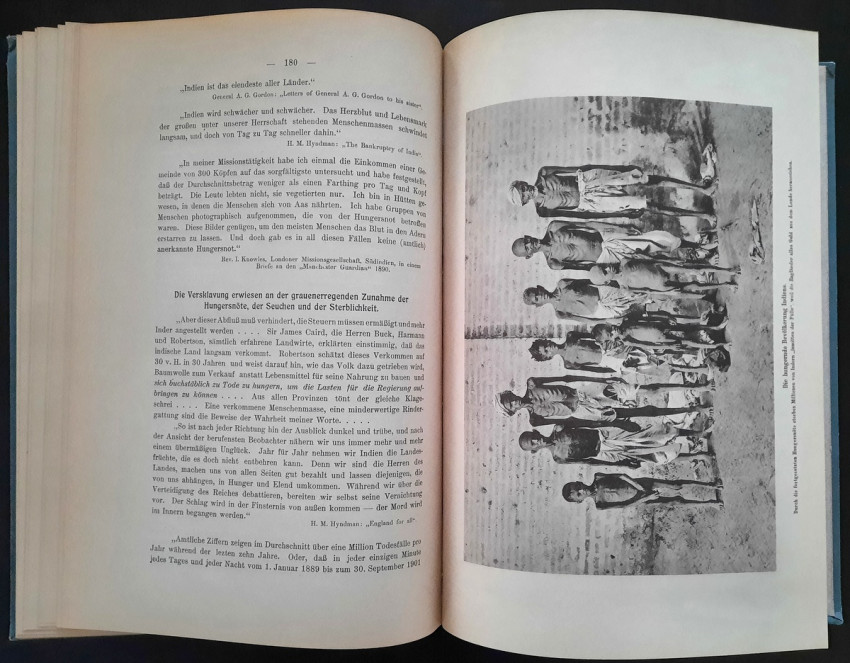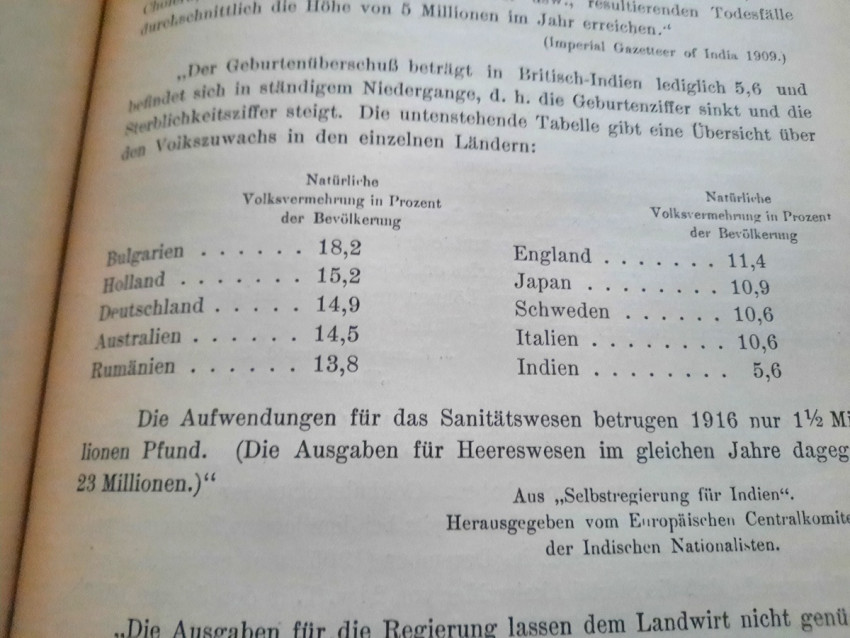This book consists of three chapters, with 7 b&w photographic illustrations and one sketch illustration. Harsh writing against the British Empire.
Contents:
I. English praise of German colonization work before the war.
II. The "proof" of the Blue Book on South West Africa.
1. The protection treaties and the establishment of German rule;
2. The suppression of the native uprisings;
3. Bergdamara, Bastards, Ovambo, and Bushmen;
4. The natives and the penal code in South West Africa.
III. Treatment of the natives in the English colonies.
1. Egypt;
2. Central Africa;
3. South Africa,
4. Australia;
5. British India.
"The British government desires the incorporation of the German protectorates occupied by its troops into the British colonial empire. Therefore, true to its long-standing principles, it is seeking ways and means to conceal its true intentions and avoid the embarrassing admission that a large-scale annexation of German territory is being prepared. By every means possible, the world is to be taught to believe that it is not selfish intentions, but purely moral reasons, that prompt England to reach out for German possessions. The slogan that Germany is unworthy of possessing colonies also serves this purpose. Public opinion is continually being influenced in this direction.
But the world knows from experience what it means when England launches a press campaign with such discussions about humanity, morality, and civilization. As early as 1903 (September 19), the New York Sun wrote: When England and the English people complain about their neighbours for an offence they themselves committed, it is natural to search for "other reasons." Everyone knows what the American newspaper means by "other" reasons. Likewise, neutral press sources have now pointed out that such outpourings tend to occur when England has a need for new annexations.
The attempt to belittle Germany's colonial methods presents the British government with particular difficulties. It finds itself compelled to turn the actual situation upside down and expose itself to serious weaknesses. But even this it does not shy away from. Already at the beginning of the war, desperate measures were taken to pin something on German colonial policy.
First, the false claim was spread that Germany was responsible for the spread of the war to the colonial territories. However, it forgot to adapt official statements, such as the Belgian Grey Book, to this accusation. From these statements, the true fact - that Germany alone had advocated unconditional compliance with the Congo Act - emerged so unequivocally that this measure failed against the Entente itself
The claim that Germany's colonial possessions posed the danger of a militarization of Africa now appeared as a substitute. The whole world knew that Germany had limited military expenditure in its colonies to a minimum and that the plan to use mass coloured armies had originated in France. There, it was received with enthusiasm at the time and, even in the depths of peace, gave the French press the opportunity to issue noisy challenges against Germany. No wonder that this attack, too, missed its purpose and even exposed its own author.
As the third link in the chain, an English Blue Book appeared in August 1918, after years of careful preparation, on the mistreatment of the natives in South West Africa by Germany. At the same time when the peaceful tribes of Africa had been brought home by Germany's enemies with the full horror of a colonial war, with its terrible suffering, and when forcibly conscripted natives were being sacrificed by the hundreds of thousands on the European battlefields as cannon fodder against Germany, this Blue Book dared to attempt to prove that Germany had forfeited its right to colonies through its mistreatment of the natives. The old game, somewhat worn out by its constant recurrence, repeats itself: at a nod from the government, the entire English press pounces on the theme and varies it with the predetermined result that it will declare itself immoral if Germany should retain even a single inch of colonial territory and thereby have the opportunity for further mistreatment of the natives While the Blue Book itself was still being withheld, its contents were released piecemeal to the press. This was intended to prevent a timely and effective rebuttal, so that telegraph and radio broadcasts would have time to spread the planned outrage throughout the world.
The English government is mistaken if it believes that this well-known method will make an impression anywhere except in England. This weapon, too, will soon be turned against England itself, for the "revelations" of the Blue Book practically invite questions about how the English, in contrast to today, judged German colonization efforts in the past, what the reality is of the accusations made regarding South West Africa, and finally, how England has treated and continues to treat its own wards. This will then provide the correct answer to the question: Is England called upon to act as judge in matters of native treatment?"
(from the Book's introduction, pages 3-4, translated from German)
"Die Behandlung der einheimischen Bevolkerung in den kolonialen Besitzungen Deutschlands und Englands. Eine Erwiderung auf das englische Blaubuch vom August 1918: Report on the natives of South-West Africa and their treatment by Germany."; Original full cloth binding; Text in German (English partly in title only); Collation complete - Title page, 201 pages, with 7 b&w photographic illustrations and one sketch illustration; Binding is strong, tight and firm, with usual shelf wear, slightly rubbed and little bumped to the extremities (more to the spine and board's corners), little discoloration. Hinges and jints whole and secure. Pages/text block clear and very bright, with some yellowing, no foxing or marks. A well preserved copy of scarce first edition.
IMPORTANT informations regarding shipping: Shipping to South Africa possible via national post ($40) or Fedex/DHL Express service ($120-150). Shipping to EU & UK via registered Airmail trackable parcel ($30-50). Shipping to US via DHL/Fedex ($120-180). For other countries please ask.
- Binding Condition: Very good
- Overall Condition: Very good
- Size: 31 x 22 cm
- Sold By: The Antiquarian Book
- Contact Person: Mariana Deric
- Country: Croatia
- Email: [email protected]
- Telephone: 0917552163
- Preferred Payment Methods: Paypal (no additional charges); Bank (WIRE) transfer via IBAN/BIC/SWIFT
- Trade Associations: AA Approved


